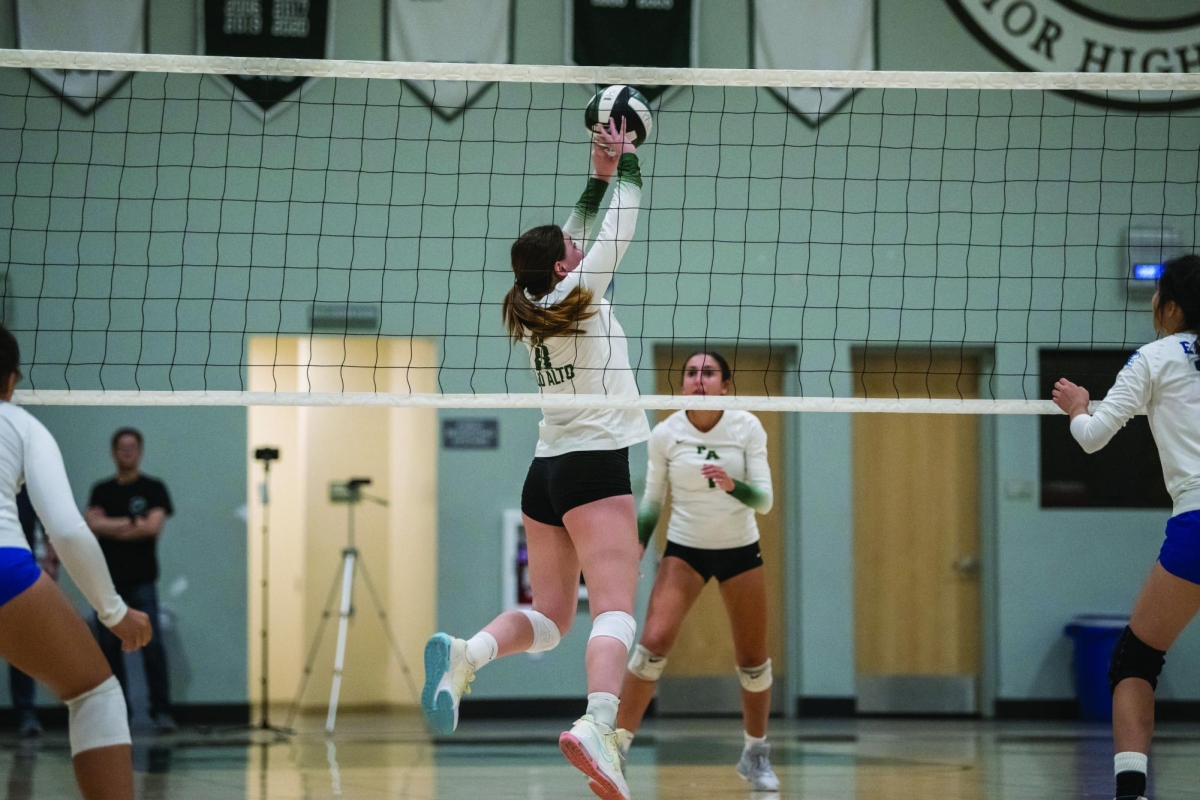In recent years, I’ve realized how much I’ve cherished the silence that surrounds me. After a chaotic day at school or when the music in my car is just slightly too loud, all I want to do is to just sit in calmness.
However, almost every weekend from January to July, there is one exception to my love for the quiet: the loud atmosphere of a volleyball tournament.
The constant chirping of a referee’s whistle. The cheers and screams of players on the sidelines. The squeaking of sneakers on the courts. I’ve grown up with these sounds, and for much of my life, I’ve had to shift my appreciation of silence to continue with the sport that I love.
Since the age of 7, I have traveled to tournaments, from Las Vegas to Philadelphia, to watch my sisters play. Although much of my time was spent complaining about this, over those years, I was able to study my sisters’ technique and apply it to my own game.
When I committed to play in college, I spent a lot of time reflecting on the past nine years of my life. A year that stuck with me the most was when I was 16 years old, and developed something called the “yips.”
The “yips” are the unexplained loss of skills in experienced athletes. For me, skills that were simply muscle memory for me one day became my biggest challenge the next. I was terrified of messing up, disappointing my coaches and teammates.
Every game I was terrified of shanking the ball, doubling my set or missing my serve, and I thought there was no way to escape these thoughts. I felt as though the thing that I had invested the most work and time in was going to end up into nothing.
However, thanks to my school season and my teammates, I was able to regain my confidence back and felt as though I was playing the best I ever have.
In my final year of club volleyball, I have realized when I have the moments that remind me of my 16-year-old self — the lack of confidence, the fear, loss of muscle memory — I find that I just don’t care anymore. The frustration that I felt before, which was driven by my passion for volleyball, has faded, and now I find myself wanting to be done with it.
16-year-old me would see it as a blessing that I don’t care for my mistakes anymore, but all I see is the loss of love and care for my game. Each day, I’ve been working to become better, and each weekend I worked to be noticed, to be recruited for college.
But with that hard work comes the feeling of being burned out, and over time it hit me too. I stopped caring.
Of course, I think about whether this will translate to college. If I won’t have the same passion that I once did, and will have to live with that for the next four years. This feeling reminds me of a quote that a coach kept bringing up during games: “Pressure is a privilege.” What he meant by this is that having the pressure of playing in a state championship is much more of a privilege than playing for 30th place.
I applied this quote into my own situation to help overcome burnout. The pressure that I had when I was 16 is something that should be seen as a privilege rather than painful memory. Even though the pressure can bring me tears like losing my last high school game or from playing a bad game, those tears are a visual representation of the passion and care I have for volleyball.
Now that I am older and entering my collegiate years to volleyball, I hope to remember the passion I have for this sport is an accumulation of a great portion of my life, rather than a regret or a waste of time.
Taking my last year of volleyball and my college career for granted will only lead to regrets, and for once in my life, I will be happy to see tears for the game of volleyball.





